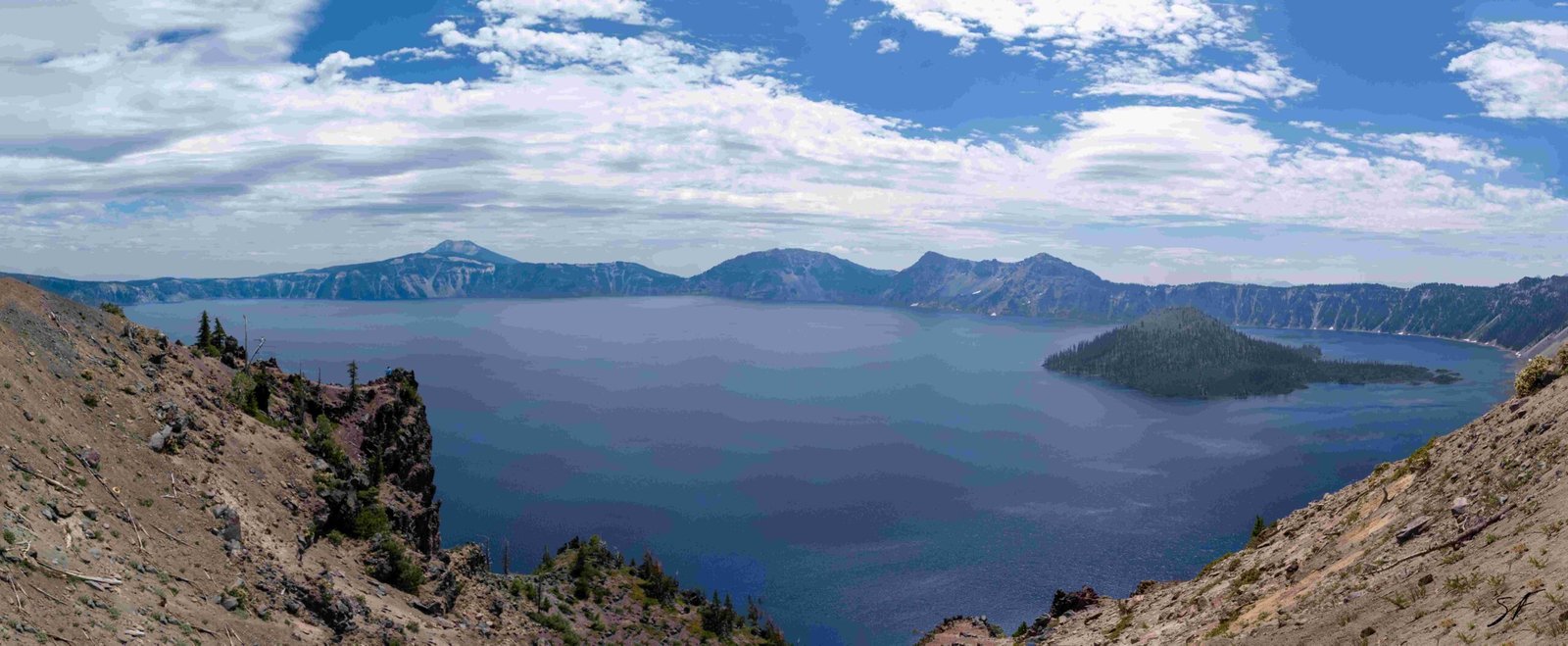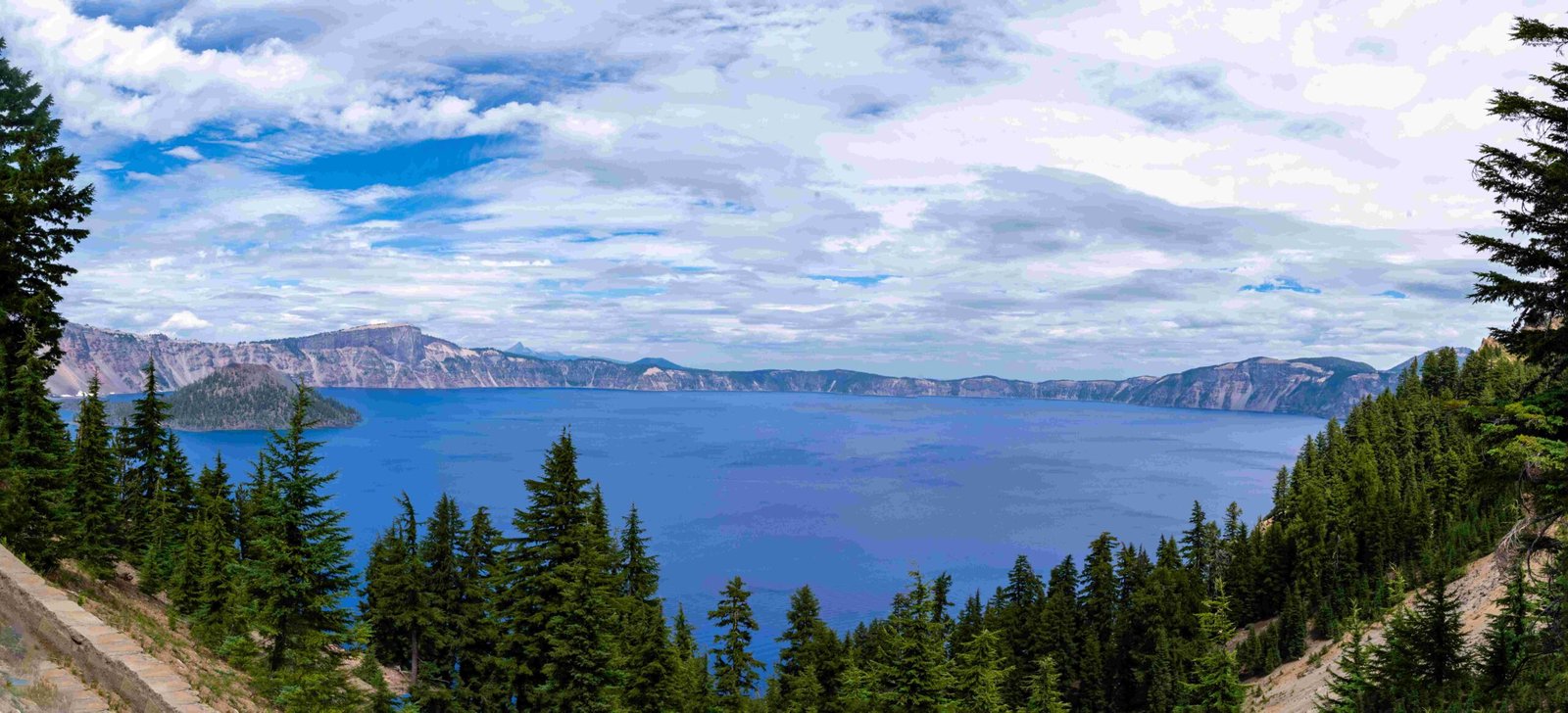Crater Lake in Oregon is renowned as the bluest lake in the world. This natural wonder, formed by a volcanic eruption 7,700 years ago, is the deepest lake in the United States. Its exceptional depth, purity, and clarity contribute to its intense blue color. The lake’s unique characteristics, including its formation, depth, and water quality, make it a captivating destination for nature enthusiasts and scientists alike. Crater Lake National Park offers visitors a chance to experience this remarkable blue marvel through various viewpoints and activities.
What Makes Crater Lake the Bluest in the World?

Crater Lake’s extraordinary blue color is a result of several factors:
- Depth: At 1,943 feet (592 meters) deep, it’s the deepest lake in the United States.
- Purity: The lake is filled almost entirely by snowmelt, with no incoming streams or rivers.
- Clarity: The water is exceptionally clear, with visibility up to 142 feet (43.3 meters).
- Light absorption: Water molecules absorb longer wavelengths of light (reds, oranges, yellows, and greens).
- Light scattering: Shorter wavelengths (blues) are scattered back to the surface.
This combination of factors creates the intense blue color that makes Crater Lake famous worldwide.
How Deep is Crater Lake?

Crater Lake’s depth is truly impressive:
- Maximum depth: 1,943 feet (592 meters)
- Average depth: 1,148 feet (350 meters)
To put this into perspective, here’s a comparison with other deep lakes in the United States:
| Lake | Maximum Depth (feet) | Location |
|---|---|---|
| Crater Lake | 1,943 | Oregon |
| Lake Tahoe | 1,645 | California/Nevada |
| Lake Chelan | 1,486 | Washington |
| Lake Superior | 1,332 | Michigan/Minnesota/Wisconsin |
Crater Lake’s exceptional depth contributes significantly to its intense blue color and unique ecosystem.
What is the Water Clarity of Crater Lake?
The water clarity of Crater Lake is remarkable:
- Average clarity: 120 feet (37 meters)
- Record clarity: 142 feet (43.3 meters) in 1997
Scientists measure water clarity using a Secchi disk, a black and white circular plate lowered into the water until it’s no longer visible. The depth at which the disk disappears indicates the water’s clarity.
Factors contributing to Crater Lake’s exceptional clarity include:
- Lack of incoming streams or rivers
- Minimal human impact
- Cold water temperatures
- Absence of algae and other microscopic organisms
This extraordinary clarity allows sunlight to penetrate deep into the lake, enhancing its blue color.
What Hiking Trails Offer the Best Views of Crater Lake?
Several hiking trails in Crater Lake National Park provide stunning views of the lake:
- Cleetwood Cove Trail
- Length: 2.2 miles round trip
- Difficulty: Strenuous
-
Highlight: Only trail leading to the lake’s shore
-
Garfield Peak Trail
- Length: 3.6 miles round trip
- Difficulty: Moderate to strenuous
-
Highlight: Panoramic views of the lake and surrounding landscape
-
Watchman Peak Trail
- Length: 1.6 miles round trip
- Difficulty: Moderate
-
Highlight: Highest accessible viewpoint in the park
-
Rim Trail
- Length: 33 miles (can be hiked in sections)
- Difficulty: Easy to moderate
- Highlight: Multiple viewpoints around the caldera
Each trail offers a unique perspective on the lake’s blue color and surrounding scenery.
When is the Best Time to Visit Crater Lake?
The best time to visit Crater Lake depends on your preferences:
- Summer (July-September):
- Warmest temperatures
- All park facilities open
-
Best visibility for viewing the lake’s blue color
-
Fall (October-November):
- Fewer crowds
- Beautiful fall colors
-
Possible early snowfall
-
Winter (December-April):
- Snow-covered landscapes
- Winter activities like cross-country skiing
-
Limited access due to snow (North Entrance and Rim Drive closed)
-
Spring (May-June):
- Wildflowers begin to bloom
- Fewer crowds than summer
- Some snow may still be present
For optimal viewing of the lake’s blue color, visit during clear summer days when sunlight can fully illuminate the water.
What Amenities are Available at Crater Lake National Park?
Crater Lake National Park offers various amenities for visitors:
- Parking:
- Large lots at Rim Village
-
Smaller lots at trailheads and viewpoints
-
Restrooms:
- Available at Rim Village
-
Located at major trailheads and viewpoints
-
Visitor Centers:
- Steel Visitor Center: Open year-round
-
Rim Village Visitor Center: Open late May to early October
-
Lodging:
- Crater Lake Lodge (open seasonally)
-
Mazama Village Campground
-
Dining:
- Rim Village Café
-
Crater Lake Lodge Dining Room
-
Boat Tours:
- Available during summer months (weather permitting)
These amenities ensure visitors can comfortably explore and enjoy the park’s natural beauty.
How Accessible is Crater Lake for Visitors with Mobility Issues?
Crater Lake National Park strives to accommodate visitors with mobility issues:
- Rim Drive:
- 33-mile scenic road with accessible viewpoints
-
Paved pullouts for easy viewing from vehicles
-
Accessible Facilities:
- Restrooms at Rim Village and main areas
-
Visitor centers with ramps and wide doorways
-
Trails:
- Some paved, accessible trails near Rim Village
-
Most backcountry trails not suitable for wheelchairs
-
Lodging:
-
Crater Lake Lodge offers accessible rooms
-
Transportation:
- Personal vehicles best for accessing viewpoints
- Limited shuttle services during peak season
While some areas may be challenging, the park offers numerous opportunities for visitors with mobility issues to experience Crater Lake’s beauty.
Crater Lake in Oregon truly stands out as the bluest lake in the world. Its extraordinary depth, clarity, and purity create a mesmerizing blue color that captivates visitors year-round. Whether you’re hiking the rim trails, enjoying a boat tour, or simply gazing at the lake from a viewpoint, Crater Lake offers a unique and unforgettable experience of natural beauty.
References:
1. Blue Color of Crater Lake – EPOD
2. Introduction to Crater Lake – National Park Service
3. Crater Lake – Wikipedia

